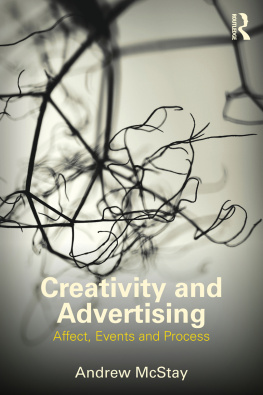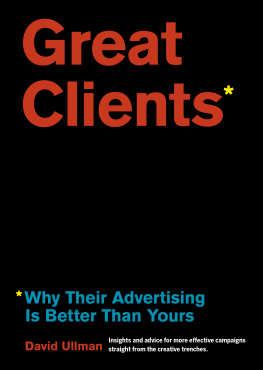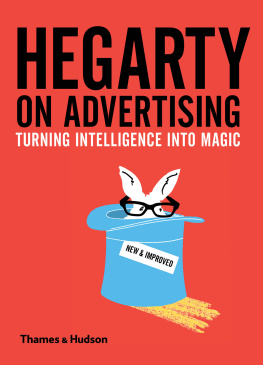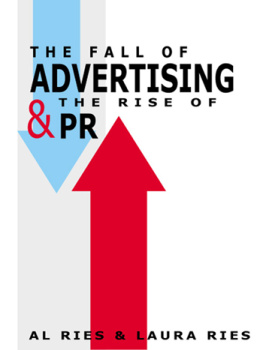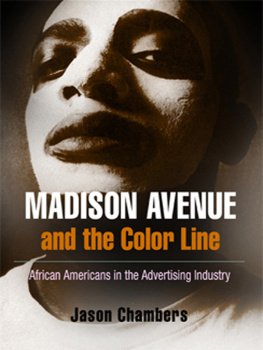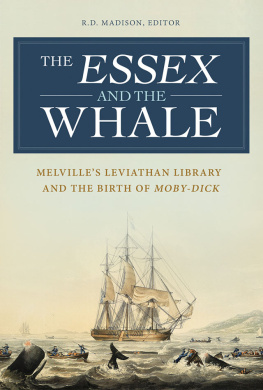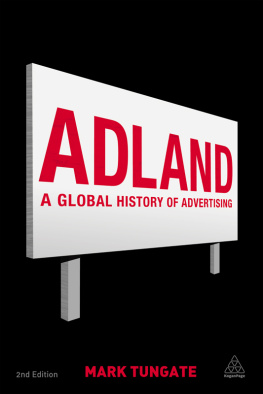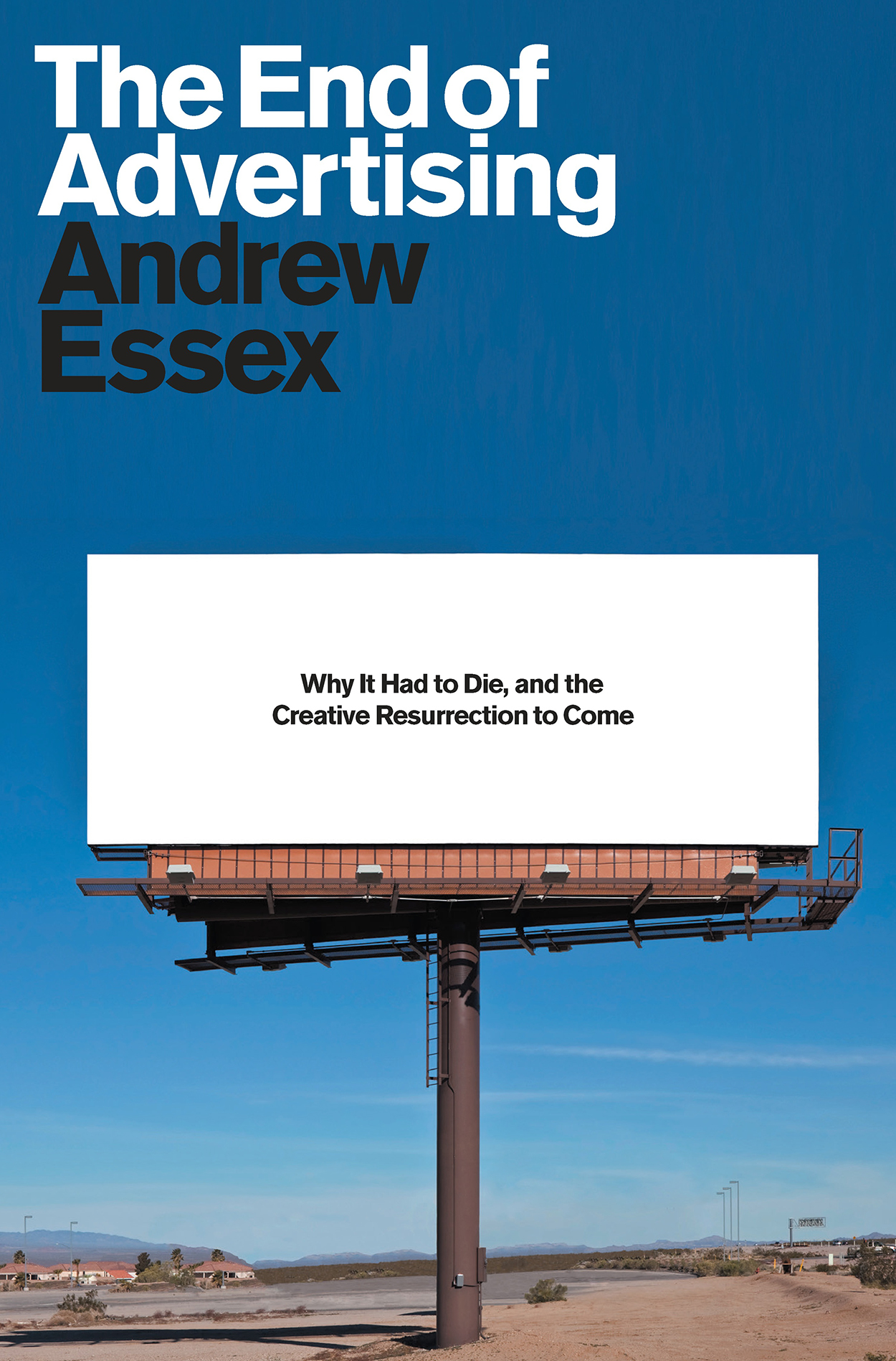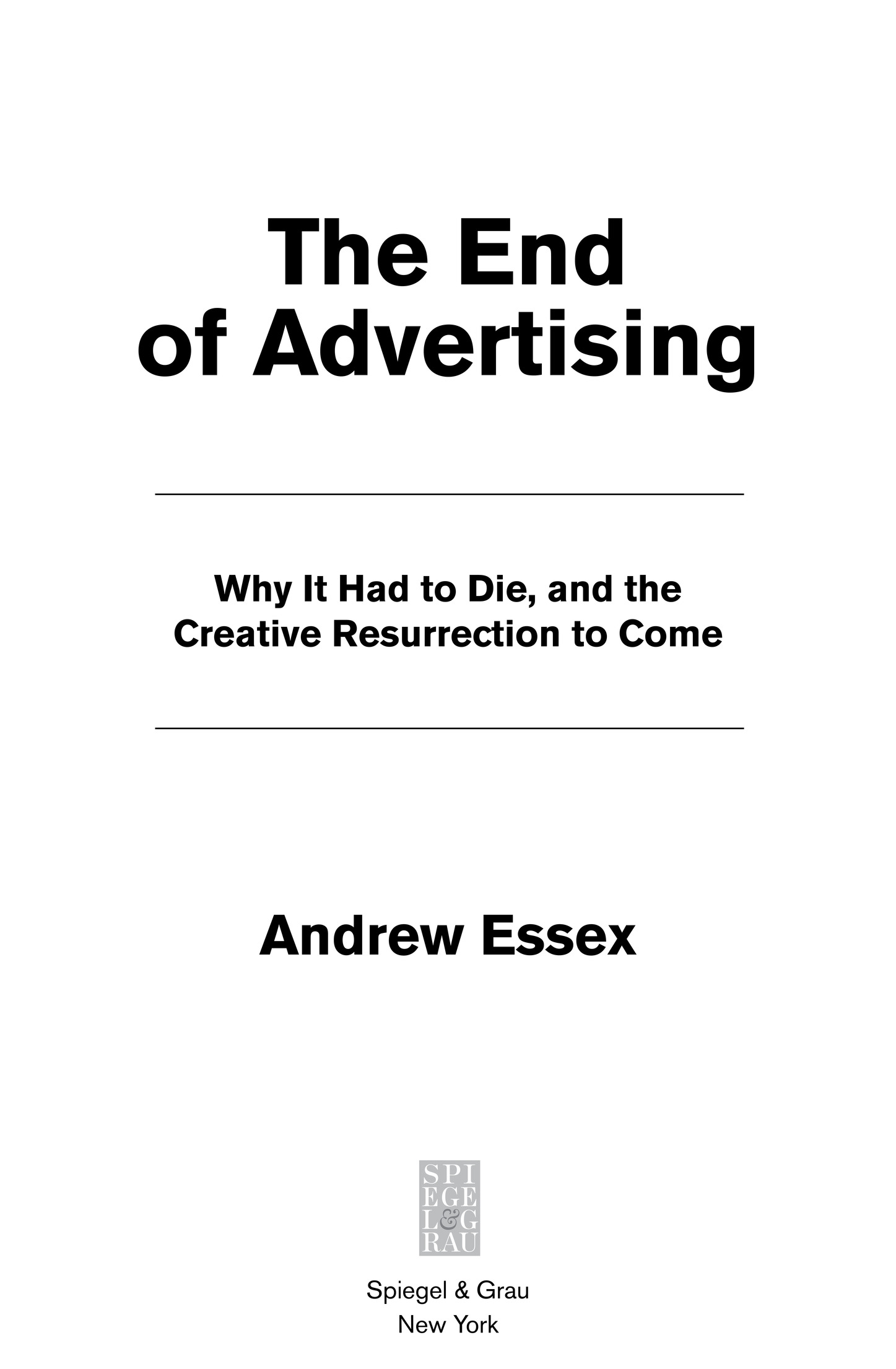Copyright 2017 by Andrew Essex
All rights reserved.
Published in the United States by Spiegel & Grau, an imprint of Random House, a division of Penguin Random House LLC, New York.
S PIEGEL & G RAU and Design is a registered trademark of Penguin Random House LLC.
Library of Congress Cataloging-in-Publication Data
Names: Essex, Andrew, author.
Title: The end of advertising : why it had to die, and the creative resurrection to come / Andrew Essex.
Description: New York : Spiegel & Grau, 2017.
Identifiers: LCCN 2016049623 | ISBN 9780399588518 (hardback) |
ISBN 9780399588525 (ebook)
Subjects: LCSH: Advertising. | AdvertisingAudio-visual equipment. | Branding (Marketing) |
BISAC: BUSINESS & ECONOMICS / Advertising & Promotion. | BUSINESS & ECONOMICS / Marketing / General. | SOCIAL SCIENCE / Popular Culture.
Classification: LCC HF5823 .E88 2017 | DDC 659.1dc23
LC record available at https://lccn.loc.gov/2016049623
Ebook ISBN9780399588525
randomhousebooks.com
spiegelandgrau.com
Cover design: Michael Bierut
Cover photograph: Shutterstock
v4.1
ep
Who has empowered you to peddle round your indulgences from divine ordinations? The hairs on our head are numbered, and the days of our lives. False negotiator, away!
The Lightning-Rod Man, Herman Melville, 1854
Advertisings worth to civilization depends on how it is being used.
from a J. Walter Thompson new business presentation, circa 1925
If your left hand sees how much fun your right hand is having, it wont want to be left out.
Advertising Hall of Fame inductee Bill Cosby, for Jell-O Gelatin Pops, 1982
Contents
Part One
Adblockalypse Now
The Beginning of the End
I t was the summer of 2015 and Howard Stern was hysterical.
That the legendary shock jock could be so easily enraged was certainly nothing new. In this instance, however, it was the subject of Sterns apoplectic ire that was truly exceptional: The King of All Media was ranting about advertising, and how much he despised it.
Stern was throwing a hissy fit because hed just heard about an inspired technology called AdBlock Plus, an ingenious app specifically conceived, as its not especially inspired name suggested, to block ads, to eradicate them like bison from the prairie, to disappear them once and for all from your online ecosystem.
By simply downloading the AdBlock extension to Chrome, Safari, or any other popular browser, one could be forever liberated from such noxious pollutants as pre-roll and banners, those (mostly) annoying promotional videos and (almost always) irksome boxes that contaminate most peoples Web experience.
I fucking hate ads on the Internet, Stern raged. Hes a man who expects to be on top of technology, and who pays others well for the privilege. Having discovered that AdBlock had in fact been around for years (as had several rivals, not to mention a host of platforms conceived to bypass ads that date back to TiVo), he was reaming his IT team with the wrath of a thirsty man whod just lost his directions to the oasis. Im sitting through these ads and youre telling me theres a way to AVOID them?!
That Sterns radio show is in fact lousy with ads created a certain eyebrow-raising dissonance, but I suspect few listeners disagreed with the sentiment. After all, people may love brands, but nobody actually likes advertising (except on Super Bowl Sunday, the high holiday of my former industry).
But ads were just a fact of life, right, like the common cold? Insufferable and incurable and as entrenched in our media picnic basket as apple pie. Long before the Internet, when appointment TV ruled the land, commercialsminus about fifty iconic exceptions from 1948 to 1984had long been a form of capitulation, a necessary evil endured by consumers in exchange for the free content theyd actually come to see. Most of us understood on some level that this was how the rent was paid, but no one was especially happy about it.
Stern surely intuited that shitting on advertising was pure populist red meat, something everybody could agree on, a gift-wrapped insight he could milk for twenty minutes of airtime, or until the next Squatty Potty spot.
Our story might end there, a momentary wormhole in the church-and-state wall between media and marketing, were it not for the fact that Stern wasnt the only ad-supported executive expressing irony-free disdain for commercial interruption that strange summer. If he had considered events from earlier that June, Stern wouldve found himself in common cause with an unlikely bedfellow: Larry Page, CEO and cofounder of Google, aka Alphabet.
At Googles 2015 annual shareholder meeting, Page reportedly told marketers that they needed to get better at producing ads that are less annoying (italics mine), and that he had no intention of interfering with the rise of ad-blocking technology on Googles ubiquitous Chrome browser. Which was odd, given that YouTube, a Google subsidiary, had cleared $1.13 billion in ad revenue in 2014, according to The Wall Street Journal, a windfall generated by the very same ads that Larry Page, Howard Sternand, lets be honest, pretty much anyone with a pulsedidnt like very much.
Odder still was that the dream of a world filled with less annoying ads had been around for a very, very long timedecades, actuallyalbeit elusively. A 1969 survey determined that 51 percent of all young people between the ages of fourteen and twenty-five found television advertisingwait for itannoying. It should be mentioned that the Magazine Publishers of America, who claimed, conveniently, that only 13 percent of the population were annoyed by magazine ads, conducted this 69 survey.
At any rate, here in the twenty-first century, where one had to search long and hard for a single fourteen-to-twenty-five-year-old whod ever watched appointment TV or read a magazine, Google clearly appeared conflicted. Yes, the company had profited handsomely from Internet advertising, but boy, was that advertising annoying. Yes, people needed to sell things; serving ads to large audiences was historically how marketers moved the merch. Search, where Google made its big money, was one thing, and who could truly dislike the pure utility of search? (Even though search results are often paid, i.e., advertising.)
But those hateful pre-roll ads on YouTube (which were more annoying, and also less profitable to Google, than its search revenue), and those dreaded banner ads that stalked one around the Internet like an obsessed former lover in need of a restraining order? Oy, well, now those were clearly doing harm (a violation of the companys infamous Dont be evil edict), the proof being that millions of people and one celebrity DJ were stampeding to download software deliberately conceived to escape them.
So why am I telling you all this? Whats eating your irritable author? Good questions.
The fact is, Im a former ad guy myself, a retired shark in a gray flannel suit. I logged a decade of service at one of the finest advertising firms in the world, if not the finest, first as CEO, then as vice chairman. If a


